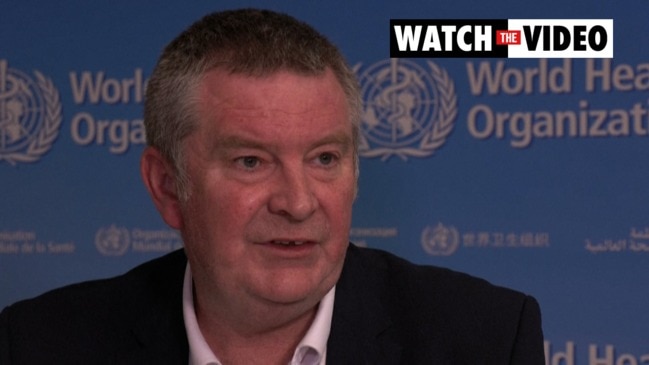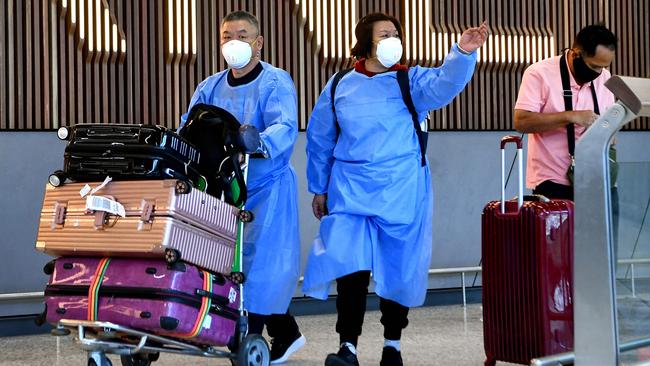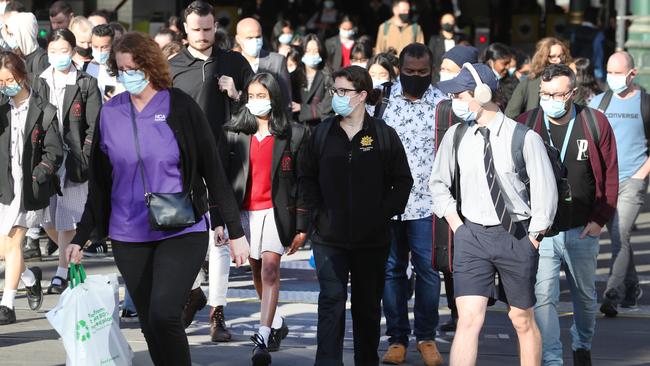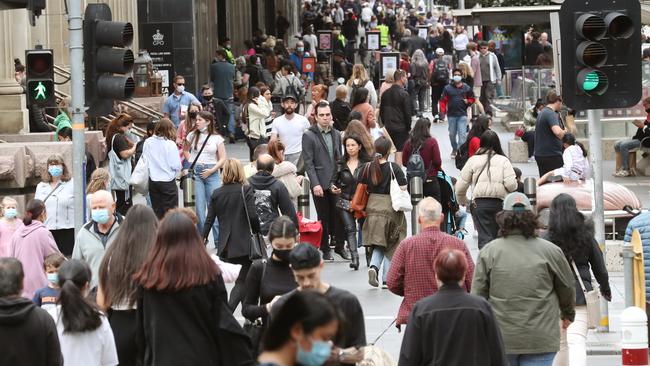Patrick Carlyon: Let’s pause the kneejerk reaction to new Covid strain
Fear and uncertainty have driven the Omicron commentary, but until the new Covid variant changes course, no state should consider more restrictions.

Patrick Carlyon
Don't miss out on the headlines from Patrick Carlyon. Followed categories will be added to My News.
Remember the old days when the case numbers determined if we could go down the street without a permitted reason?
On Thursday, there were 1232 cases. It’s possible you did not hear. The case numbers are not the measure they once were. Freedom is no longer tethered to a statistic.
You’ve certainly heard about the rise of the Omicron variant, which has spread to at least 57 countries and will bathe the world as the dominant variant.
It is probably more infectious than previous variants.
Pfizer has announced that a booster will be required to be more effective against Omicron.
Britain has reintroduced some restrictions because of Omicron, which has landed in Victoria, amid confusion about the source of its spread in the community.
If Victoria follows elsewhere, the state will be awash in Omicron in a short time. Should we cue the reflexive response conditioned over the past two years?
Awash in Covid? Assume the position. Stock up on toilet paper.

Fear and uncertainty have driven the Omicron commentary, given the variant’s high number of spike mutations.
Yet one marker, which tends to be overlooked, should be counted above all others in reaching for early conclusions.
How many people have so far died from Omicron?
Zero.
Since November 24, when Omicron was identified, more people have died from falling off ladders while hanging Christmas decorations than from Omicron.
Omicron is the next chapter in the deadly virus we’ve endured for almost two years. Yet it doesn’t sound very deadly.
Compare the reports from South Africa, where Omicron appeared to have evolved, with the coverage of Wuhan in early 2020, where deaths mounted and the plague was nigh.
The world has lost about 5.27 million people from Covid. Not one of them is officially due to the new “threat”.
Yet so far, we are being warned to assume the worst.
“Any complacency now will cost lives,” says World Health Organisation (WHO) Director-General Tedros Adhanom Ghebreyesus.
In England, masks have been pulled from pockets. Workers have been told to stay home.
There, government adviser Professor Neil Ferguson has warned against optimism. Don’t assume Covid will evolve to be milder, he says, even though that describes the longer trajectory of every pandemic in history.
His is one viewpoint, an expert one at that. And this kneejerk rumble for restrictions is almost second nature.

When South Australia considered Omicron last week, the response was positively medieval. The state considered closing the borders, as if raising a drawbridge against invaders and Santa Claus.
Covid has been lethal. Many of its survivors become drastically ill. Yet almost every adult is vaccinated in Victoria. They will get boosters.
Pills will soon be available to stem the severity of Covid disease. Most of the fraction of deaths who were vaccinated exhibited other conditions.
This isn’t to pretend that Covid no longer matters. We can’t dismiss it like we might a losing footy game.
But an Omicron future seems better than any of the alternatives during the pandemic.
Throughout, we have been invoked to follow the science. Against that, we have also been encouraged to tremble against the latest threat, real or imagined.
Remember last year when fears were voiced that some Covid cases were asymptomatic?
The point was not that people were not sick from the sickness, but that they might spread the virus (perhaps to infect more people who would also not know that they were sick).
Have we learned from these peculiarly pessimistic takes? Apparently not, given the available science of Omicron suggests it is a relatively minor menace.

Hospitalisation rates have not climbed in South Africa, which has more than 60,000 Omicron cases. The need for oxygen for patients, who are generally unvaccinated, is far less than in previous waves.
Omicron sounds like a cold, with a sore throat, which can send you to bed for a few days. Compare that with influenza, which was officially related to 486 Australian deaths in 2019.
Rather than being an obstacle, Omicron looms as a possible scientific pathway out of the pandemic, a kind of blessing that scientists had hoped for.
It seems set to replace Delta, which is a killer. Exposure to a non-fatal variant – and recovery – bolsters mass immunity.
University of Melbourne epidemiologist Professor Tony Blakely hopes Omicron is our “get-out-of-pandemic card”.
The variant may change course in coming weeks.
But until it does, no state should be considering more restrictions – and their inexorable cost – for fear of surging cases of people with sore throats.
Patrick Carlyon is a Herald Sun columnist



